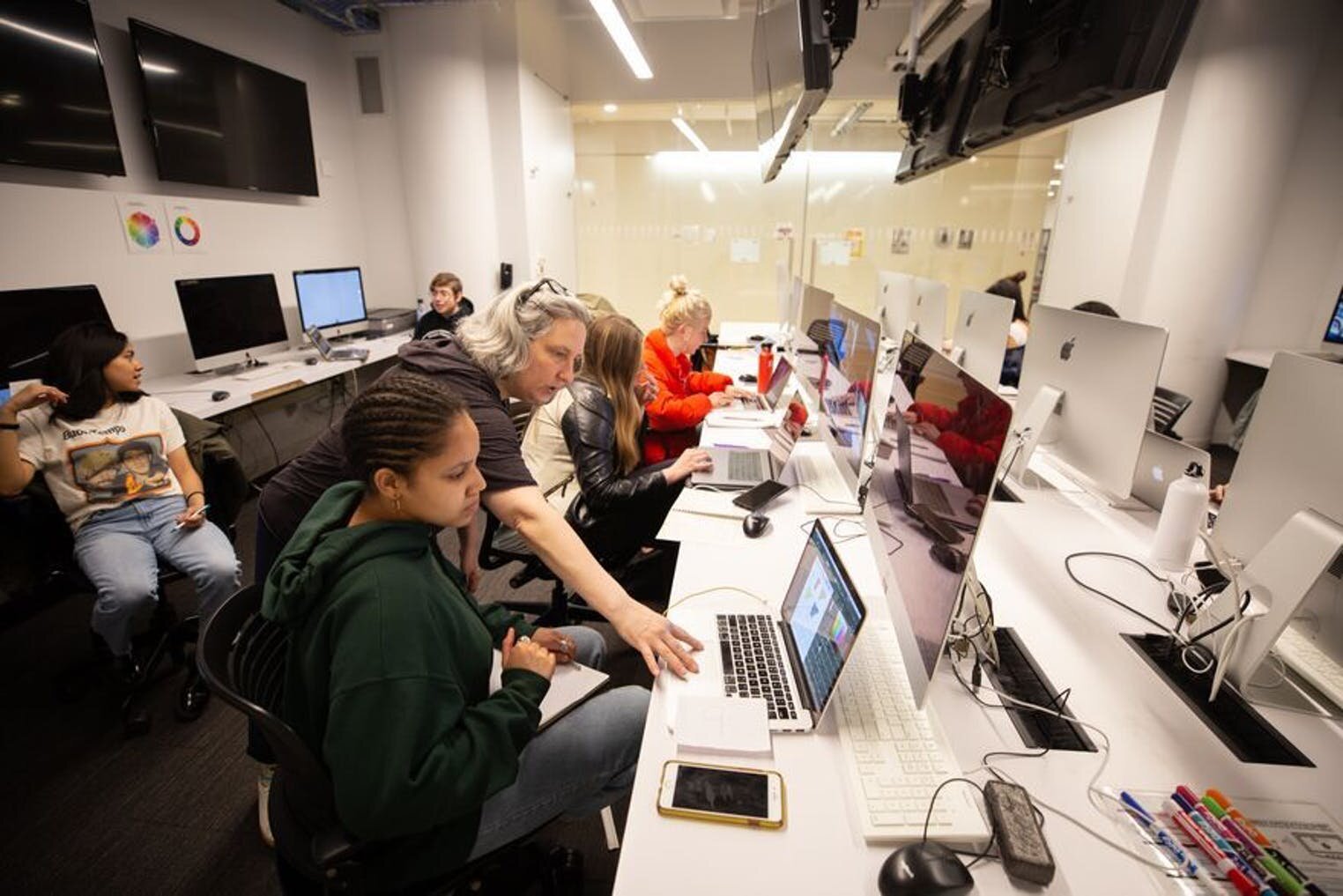About
Philosophy
Code as a Liberal Art aims to improve students’ hands-on experience with code and computational thinking by embedding these experiences within the practices of the liberal arts disciplines. Courses introduce students to the theory and practice of computational thinking. They also help students see code as a tool for answering questions deriving from disciplinary perspectives, as well as a means of creative expression. The goals of the program are to show students how coding is an integral part of multiple practices and ways of knowing, and to ensure that they are more conversant with computational logic and technology.
On a broader scale, the Code as a Liberal Arts program strives to articulate a new form of civic education. Big data and algorithmic processes structure almost all aspects of contemporary life, from Facebook feeds to credit score. Collectively, we have a responsibility to educate ourselves about the effects of these processes. We believe that both code and computational thinking lie at the heart of liberal arts education in the 21st century. They provide foundational skills in communication and critical thinking, respectively—alongside traditional competencies, such as writing and math. And they are the basis upon which deeper questions based in the liberal arts disciplines can be framed.
Learning Objectives
Code as a Liberal Art classes are designed to help students:
Use computation as a tool to enhance their liberal arts education—to better analyze, communicate, create and learn;
Engage in project-based and collaborative learning that utilizes computational/algorithmic thinking;
Gain a broader understanding of the historical and social factors leading to the increasing presence of computational systems in our lives;
Work through the social and political implications of/embedded within computational technologies and develop an accompanying ethical framework;
Appreciate the challenges of equity and access posed by increased reliance on computational technologies as well as their potential to reinforce existing inequalities in society;
Think critically about the ways they and others interact with computation including understanding its limits from philosophical, logical, mathematical and public policy perspectives; &
Understand the intrinsic relationship between the physical world, analog environments and digital experiences.



